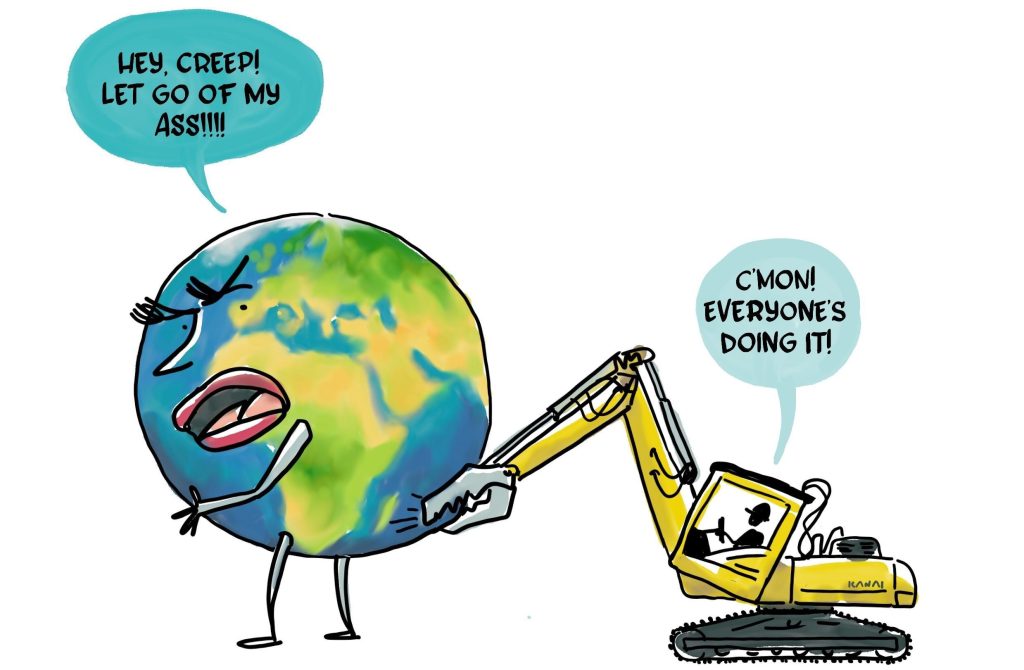
Core Text
Moser, Susanne C., and Lisa Dilling. “Communicating Climate Change: Closing the Science Action Gap.” The Oxford Handbook of Climate Change and Society, Jan. 2012, pp. 1–18., doi:oxfordhandbooks.com.
Summary
Susanne C. Moser and Lisa Dilling’s article published in The Oxford Handbook of Climate Change and Society discusses different manners of communications and their effectiveness in society. Moser or Dilling do not promote and particular response to climate change throughout their article, however their goal is to present research on how communication on climate change can be carried out more effectively. They offer four main reasons that climate change communication has been less effective: lack of information, motivation by fear, lack of diversity in framing issues to diverse audiences, and utilization of mass media. Moser and Dilling believe more efforts should be implemented in diversifying strategies for communication on climate change to get more people engaged.
Teaching Resources
Norgaard, Kari Marie. “Climate Denial: Emotion Psychology, Culture, and Political
Economy.”The Oxford Handbook of Climate Change and Society, Aug.2011, pp.1-17.,
doi:oxfordhandbooks.com.
Kari Mari Norgaards article, “Climate Denial: Emotion Psychology, culture and Political Economy” published in The Oxford Handbook of Climate Change and Society discusses the very real problem of climate denial. Norgaard highlights the roles of emotional, culture, social structure and inequality that plays into individual’s response towards Climate Change. She also uses psychological and sociological explanations for climate denial. The denial is often cultural and can be attributed to positions of privilege. This article is relevant in discussing communication on Climate change as there are often other barriers to receiving information in addition the the manners in which the message is conveyed and disseminated.
Daggett, Cara. “Petro-Masculinity: Fossil Fuels and Authoritarian Desire.” Millennium: Journal of International Studies, vol. 47, no. 1, 2018, pp. 25–44., doi:10.1177/0305829818775817.
Cara Dagget writes a compelling article in the Millennium: a Journal of International Studies, “Petro-masculinity: Fossil Fuels and Authoritarian Desire”. It is a unique article looking at climate change denial through a feminist lens that argues that the proliferation of fossil fuel extraction and consumption can be held up by the white male patriarchy. Dagget notes that extensive networks of privilege are sustained by the fossil fuel industry and are threatened by climate change initiatives. Dagget further discusses how climate denial obviously serves fossil-fueled capitalist interests, however it can responsible for the catalyst of authoritarianism as the profits from fossil fuels secure cultural meaning, identities, and political opinions. This article is relevant in discussing climate change communication as in addition to reasons of denial there may be larger systemic patriarchal hindrance to making real change towards sustainability.
Bina, Olivia, and Francesco La Camera. “Promise and Shortcomings of a Green Turn in Recent Policy Responses to the ‘Double Crisis.’” Ecological Economics, vol. 70, no. 12, 2011, pp. 2308–2316., doi:10.1016/j.ecolecon.2011.06.021.
Bina and Camera’s paper analyzes six international-scale responses to the financial and climate change ‘double crisis.’ The paper predominantly focuses on the role of economics as the dominant model and belief system that controls responses to climate change. They discuss a global Green New Deal which would not only combat sustainability on a global and cooperative scale but would address issues of vulnerable people, job loss and a disrupted financial system. Bina and Camera also discuss how responses to the double crisis need to be addressed with better regulated markets. Overall Bina and Camera argue that without an economic approach to climate change, solutions will not be achieved regarding the double crisis. They also suggest the response to the crisis has been poor and development without the promotion of justice and environmental sustainability as a sustained goal will continue to fall short. This article is important to discussing climate change communication because in addition to sociological, psychological, and patriarchal that pose obstacles to progress on climate change initiatives, economics is predominant force that will be necessary to address in addition to addressing climate change communication effectiveness.
Discussion Questions
- In what ways can communication on climate change be geared towards diverse audiences so that a ‘one size fits all’ approach can be avoided in order to facilitate understanding of issues and inspire real initiatives?
- What are some examples of ways that we can combat cultural climate change denial?
- If economics are interrelated with climate change, what types of incentives can be given at the corporate level to achieve real climate change goals?


